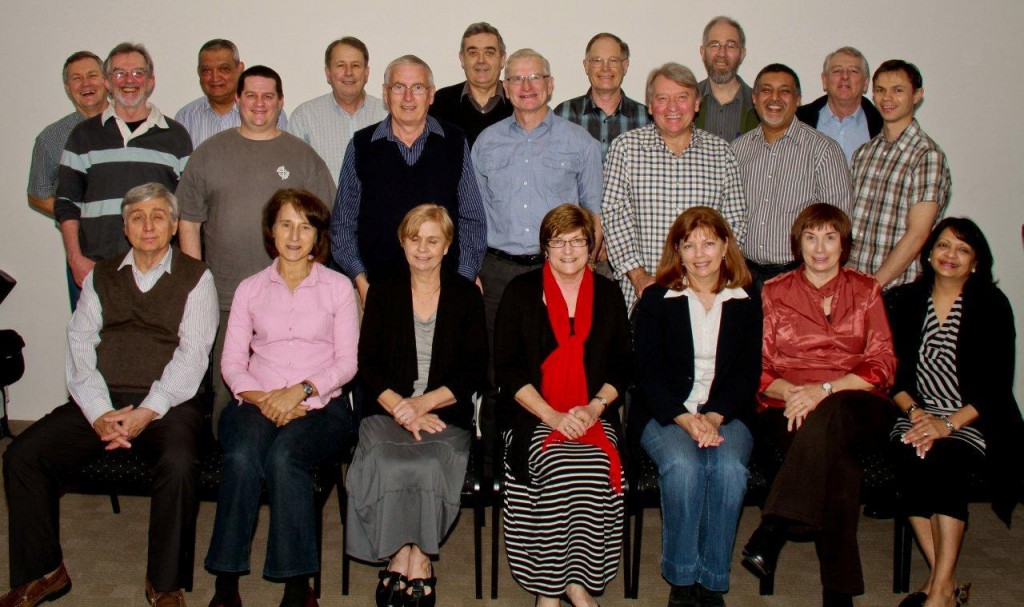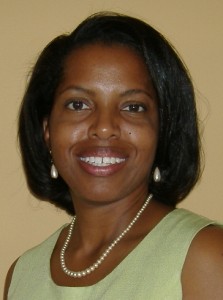Here are video reports from four 2012 U.S. camps sponsored by GCI Generations Ministries:
Author: GCI Media
Hans-Juergen Mittag
Prayer is requested for Hans-Juergen Mittag, a GCI elder in Germany. He has a malignant growth on the side of his throat that has been bothering him for a while. It s not clear yet whether the cancer has spread to other parts of his body. More medical examinations are planned.
Hans-Juergen, who is 80 years old, and his wife Rosl have served our Munich congregation for many years. Please pray for healing, encouragement and comfort.
Cards may be sent to:
Hans-Juergen Mittag Schillerstr. 22 87700 Memmingen GermanyDeath of Charlie Piscitello
We are saddened to learn of the death of Charlie Piscitello who formerly pastored the GCI congregation in Batavia, New York. He died on July 30 and was buried on August 4 in Batavia.
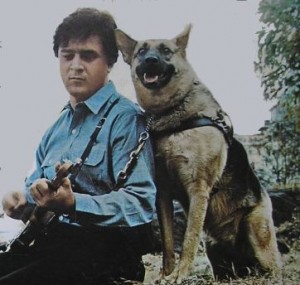 Charlie was born with cataracts and glaucoma, and following several childhood accidents had both eyes removed. He attended the New York State School for the Blind. It was there on a coal pile that he found a guitar. He taught himself to play and later formed a band with several classmates and an instructor at the school.
Charlie was born with cataracts and glaucoma, and following several childhood accidents had both eyes removed. He attended the New York State School for the Blind. It was there on a coal pile that he found a guitar. He taught himself to play and later formed a band with several classmates and an instructor at the school.
Charlie’s first recordings were made at the school. After leaving the school in 1961, Charlie formed a band, playing in various western New York venues. Later, he hired a manager and began touring. On one occasion, Charlie filled in for the Eagles as the opening act for Blood, Sweat, and Tears. Charlie’s music and charm impressed the band, who offered him a contract to continue the tour.
With the stage name Charlie Starr, Charlie cut several single records and two albums: Just Plain Charlie and Tough and Tender. His musical career spanned all fifty states, touring with individuals and groups, including the Moody Blues, James Taylor, Johnny Cash and the Carter family, Tina Turner, the Carpenters, and Yes. James Taylor graciously offered Charlie his song, One Man Dog in reference to Charlie’s guide dog, Princess, pictured on the Just Plain Charlie album cover (see cover picture, above).

Abandoning fame and fortune to tune pianos and serve the Lord in ministry, Charlie left his musical career and dedicated his music and his life to the Lord. In 1991, while living on a dairy farm in Greene, NY, Charlie met Judi, and not long after their marriage in 1992, Charlie began a small Bible study group in their home in Batavia.
In 1997, Charlie was ordained an elder in the Worldwide Church of God. He then became pastor of GCI’s Batavia Christian Fellowship, which later merged with Faith Community Chapel.
When his health began to fail, Charlie pastored a small house church and participated in a prayer ministry with Care-A-Van Ministries. He also occasionally joined the Care-A-Van band, sharing the gospel at every opportunity.
Charlie is survived by his wife Judi, four sons, two brothers, a sister, four sisters-in-law, numerous nieces and nephews and five grandchildren.
Cards may be sent to:
Mrs. Judi Piscitello 205 Bank St Batavia, NY 14020-1503Thailand update
This update is from Eugene Guzon, GCI’s national leader in the Philippines and mission director for Northern Asia and Micronesia.
I recently traveled to Rayong City, Thailand, a two and a half hour drive from Bangkok. There I met with GCI pastor Joel and Beth Alisbo who work in Rayong as teachers, along with Jean Anne Almera. They gave me a tour of their mission’s halfway house and worship center. This place is also their venue for teaching English as a second language to Thai adults and children.

Several of our members now living in Rayong City received missions training in the Philippines. They saw the benefit of going to the mission field in teams, and now in Rayong City they serve in missions together. Because teaching English as a second language is a Thai government priority, the team found an English-language school to be an effective outreach ministry tool. They also serve at the Rayong City Juvenile Center, a correctional facility with about 500 inmates. There they conduct values and skills training and provide instruction in the English language. The center’s director has been so pleased with their ministry that he wants to open their training to the center’s employees.
The group is also reaching out through weddings. Recently, Pastor Joel and Pastor Dante Abatayo helped organize for an overseas Filipino couple a wedding at the exclusive Siam Country Club in the tourist area of Pattaya, a beach resort popular with tourists and expatriates. Pastor Joel gave the wedding sermon and Pastor Dante handled praise and worship. While many of the guests were Filipinos, some were middle class Thai nationals who also heard a presentation of the gospel in the message and music.
These are some of the things that excite our members in Rayong City and other parts of Thailand. In the midst life’s daily grind, these outreach ministries are building enduring relationships. Before the end of the year, the Rayong City members hope to host a short-term mission trip to their city. They covet your prayers and partnership, as they seek to participate in the life, love and work of God in Thailand.
Pastor Don Hussell
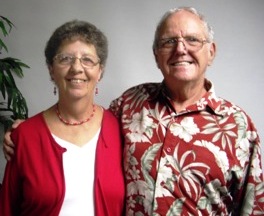
Don Hussell, GCI Senior Pastor in Ripley, West Virginia, lives 300 yards from where he was born, on the farm his parents built. He was an only child who learned early how to play by himself and how to work hard. “I am part of the Boomer generation and we breathe work. I don’t think about it, it just happens.” His primary responsibility at an early age was to carry water to his home from the spring on the other side of the hill. He never looked forward to washday, saying, “Mom used way too much water.”
Married to his wife, Alice, for 47 years this November, Don and Alice have one son, one grandson, two granddaughters and one great granddaughter. Don gives much of the credit for his ministry to his wife Alice. “I would not be who I am today without her full support.”
When asked how he became a GCI pastor, Don shared that he simply moved through the process. He first served as a deacon and then became a youth pastor for about six years, conducting large youth events on his farm. In 2004 he became the senior pastor – a feat he claims was the result of “12 long difficult years of misery” in Spokesman Club, which helped him overcome his fear of speaking. “God knew what he was doing because fear was actually keeping me in bondage of being used by God.” In 2003, Don was leading a small group in a small town and they decided they wanted to be a church. Don was asked to be the pastor in 2004.
Don loves being a pastor and loves preparing messages. His pastoral passion is “to help people know who they really are in Christ… watching the Holy Spirit bring new revelation to a person and watching that person grow in Christ.”
Many of Don’s most memorable moments deal with the youth, “taking them to events and watching them come to a place in their lives to believe the gospel and accept Jesus as Lord… to be there when a youth you have been working with comes to that place and says, ‘Jesus is Lord, and from this day he is my Lord.’”
A highlight in Don’s ministry was going to Uganda and helping a pastor build an orphanage. Don invited the pastor to his congregation and the pastor shared a dream of building an orphanage and said he needed $21,000 to build three buildings for the orphanage. “I just felt led to get up in front of our small church of 25 and say I think we need to help this pastor fulfill what God has called him to do,” Don shared. His small church raised more than $50,000 for the orphanage. Sometime later, Don visited the orphanage in Uganda. He has many stories of his trip there that he loves to share with those who ask.
When asked when he feels closest to God, Don responded, “When the opportunity comes that I can tell people about the true God who loves them more than they think… it is at this time that I reflect on what God has done in my life.”
Don’s interest with GCI started in 1980 through The Plain Truth magazine. He has loved the journey Jesus has taken him on. “Being part of the whole process of the transformation… living in legalism, and watching God work with us in that, then being part of the process of transformation… to me it is the reality of following Jesus… we just follow where he leads us by the Holy Spirit.”
Strong theology vs. weak theology
Dear Brothers and Sisters in Christ,
 One of the best definitions of theology is the one ascribed to Anselm of Canterbury (1033-1109), who called it “faith seeking understanding.” The converse of this – “understanding seeking faith” is known as apologetics. Pursued properly, both disciplines can lead us to dig deeper and deeper, coming to appreciate more and more the simple, yet profound statement that “God is love.”
One of the best definitions of theology is the one ascribed to Anselm of Canterbury (1033-1109), who called it “faith seeking understanding.” The converse of this – “understanding seeking faith” is known as apologetics. Pursued properly, both disciplines can lead us to dig deeper and deeper, coming to appreciate more and more the simple, yet profound statement that “God is love.”
But as the cartoon below (used with permission) illustrates so well, just digging deeper does not guarantee that our conclusions will be good. We need to dig in the right direction. As we are reminded in 2 Timothy 3:7, it is possible to be “always learning but never able to come to a knowledge of the truth.”
Theology has been described as being weak or strong based upon its arrangement and understanding of various doctrines and/or a specific understanding of the attributes of God. When I first heard this, I thought of it in terms of correct and incorrect doctrine. However, the more I think about it, I realize it is more than that. Doctrine is only one ingredient of authentic Christianity. It is important, to be sure – it is essential that the church teach right doctrines. However, doctrine is not all that we must include in our worship of our Creator, Savior and Sanctifier. Doctrine does not save us. No matter how much we know, Paul reminds us that it doesn’t do us any good if we don’t have love (1 Corinthians 13:2).
I first realized a distinction when, with Dr. Mike Feazell, I attended a large evangelistic conference several years ago. In one session it was noted that there was a tremendous evangelical opportunity to be had in the wake of the attacks we now refer to as 9/11. The presenter suggested that we celebrate the firefighters, police officers and other heroes who saved the lives of others, sometimes losing their own in the process – a powerful analogy of what Jesus has done for humanity.
During a later talk, a serious contradiction became apparent, although most seemed oblivious to it. Another presenter, in order to motivate us to evangelism, emphasized that unless someone had made a conscious decision for Christ, God would send them to hell forever. Mike, putting the two presentations together, elbowed me and said, “So, how do you celebrate a hero who gave his life to save others but who had been sent to hell forever because he had not accepted Jesus as his Savior? What is there to celebrate about a hero who is now burning in hell?”
“That’s the problem with a weak theology,” I replied.
Our theology defines how we understand God’s nature, character, heart, mind and purpose. It fills out for us how God views us and others and what kind of relationship he wants with us.
Strong theology has a clear and coherent grasp of who God is and what God wants for us: God is exactly like Jesus all the way down. He is the fullness of deity, bearing the stamp of the character of God. He is the visible image of the Father and the Spirit. In Jesus, what you see is what you get.
Weak theology, however, presents God in bits and pieces, often leaving us with a view of a God who is of two minds, or who has two different wills, or even two different sides to his character. Sometimes Jesus is presented as one “side” of God who wants to save us by grace and the Father as the other “side” who wants to condemn us under the Law. This God has two wills, two purposes, two attitudes towards his creation and so has two kinds of relationship with us. This God is for some of us, but against others.
Weak theology leaves us with two minds toward others. We’re supposed to love others, even our enemies, and present the Gospel to them and encourage them to surrender their lives to Christ who died for them. But if we believe God only loves some and will only call some to himself but is against others and just as happy to send them to hell, it’s hard, if not impossible, to have the same attitude and hope for all. We are left with the sense that we’re not being totally truthful when we present the Gospel as if it’s for everyone.
While it is true that some may somehow reject the Gospel of grace no matter what we or even God does for them, perhaps for all eternity, God’s revelation to us of his single mind, will and purpose for all is made clear by Paul:
For God was pleased to have all his fullness dwell in him, and through him to reconcile to himself all things, whether things on earth or things in heaven, by making peace through his blood, shed on the cross (Colossians 1:19-20).
Weak theology undermines this vital truth leaving us with the impression that Jesus only shows us one side of God, not the fullness of God and that God is interested only in reconciling some things, not everything. Weak theology can lead to an “us vs. them” elitist mentality where, after the evangelistic meeting is over, we minister to those on the “inside” far differently from those on the “outside.”
While weak theology leads us down this dark and conflicted path of exclusivism, strong theology affirms that God loves everyone profoundly and places love above all other gifts from God:
If I have the gift of prophecy and can fathom all mysteries and all knowledge, and if I have a faith that can move mountains, but do not have love, I am nothing (1 Corinthians 13:2).
While weak theology leads us to erect barriers between people, strong theology understands that God, who is no respecter of persons, “wants all men to be saved and to come to a knowledge of the truth” (1 Timothy 2:3-4). Led by this truth, we are encouraged to join with Paul in tearing down barriers that divide people from God and one another:
Though I am free and belong to no one, I have made myself a slave to everyone, to win as many as possible. To the Jews I became like a Jew, to win the Jews. To those under the law I became like one under the law (though I myself am not under the law), so as to win those under the law. To those not having the law I became like one not having the law (though I am not free from God’s law but am under Christ’s law), so as to win those not having the law. To the weak I became weak, to win the weak. I have become all things to all people so that by all possible means I might save some. I do all this for the sake of the gospel, that I may share in its blessings (1 Corinthians 9:19-23).
While weak theology includes or excludes people from coming under God’s reconciling work based upon their performance, strong theology recognizes that Jesus’ atonement has pre-qualified everyone for salvation. Note Paul’s words to the Christians in Colossae:
Giving thanks to the Father, who has qualified us to share in the inheritance of the saints in light. For He rescued us from the domain of darkness, and transferred us to the kingdom of his beloved Son, in whom we have redemption, the forgiveness of sins (Colossians 1:12-14, NAS).
To sum it up, whereas weak theology begins with bad news, hoping to convince (or frighten) people into hoping there is good news, strong theology starts and ends with the Good News for all:
God so loved the world that he gave his one and only Son, that whoever believes in him shall not perish but have eternal life. For God did not send his Son into the world to condemn the world, but to save the world through him (John 3:16-17).
Strong theology is profoundly and consistently evangelical, while weak theology is a pretender. As we dig deep into theology, it is important that we dig in the proper direction.
With love in Christ’s service,
Joseph Tkach
P.S. We have a new tool on the GCI Weekly Update blog for printing the entire current issue as a single document. Click on any of the links in the top of the links column (above left) and the “Printable Version” link will appear. Click on that link, and the entire current issue will appear on screen as a single document. You can then print that document using your browser’s print function (this seems to work best in Firefox and Internet Explorer, and less well in Chrome).
Australia Pastors Conference
Here is a group picture from the recent GCI Australia Pastors Conference. Click here for additional pictures on Facebook (you must be signed into FaceBook to view these).
Developing relationships with unchurched neighbors
Here are links to eight videos that, taken in order, paint a helpful picture of ways to develop relationships with your unchurched neighbors. Thanks to GCI elder Cliff Higgins from San Jose, California for providing these links.
1. What is a Missional Church?
2. Building Blocks – Loving Your Neighbor
3. Rediscovering the Art of Neighboring Taking the Great Commandment Seriously Part 1
4. Rediscovering the Art of Neighboring Part 2
5. Rediscovering the Art of Neighboring Part 3
6. Are Your Neighbors The Clampetts? What do we do?
Barbara Miller ordained
Serge Volpe graduates
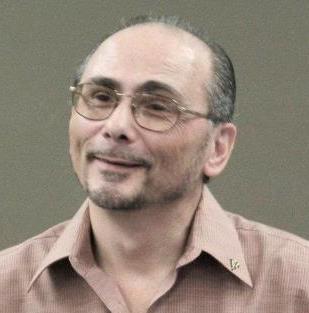
We are pleased to announce that Serge A. Volpe, a GCI elder serving in White Plains, New York, was recently awarded a Master of Arts in Ethnomusicology degree with High Distinction (4.0 GPA) from Liberty University in Lynchburg, Virginia.
Serge’s thesis, which received top honors, is entitled When Black Meets White in the Heart of Worship: A Case Study of Musical Changes in a Multiracial Church. Serge’s primary research question is: “What happens when African-American musical styles are introduced into the liturgy of a multiracial church where the liturgy had previously primarily consisted of European-American musical styles?” His thesis is available on ProQuest Dissertations and Theses Database or from the Digital Commons Database of Liberty University.



